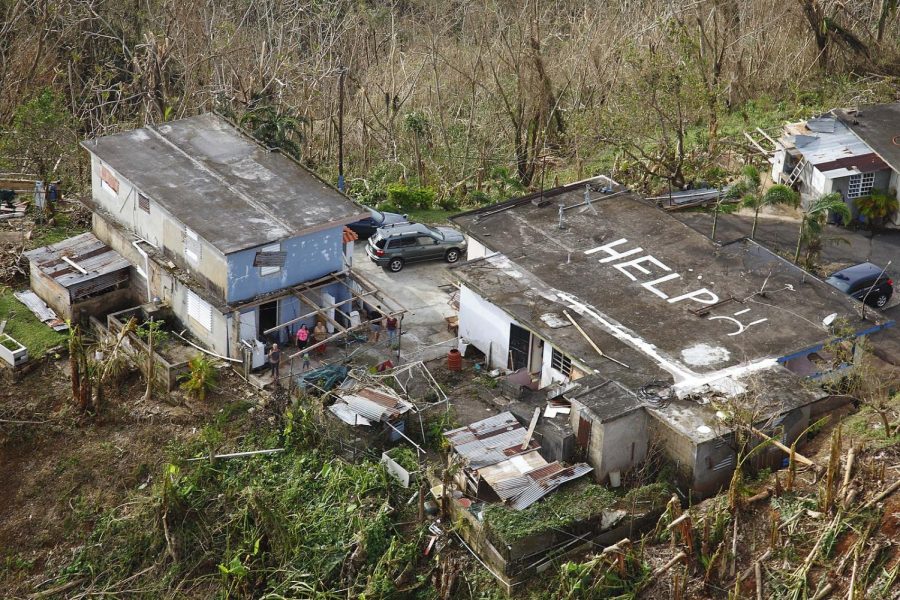Stop The Suffocation
Rage towards the situation in Puerto Rico
This article was originally drafted in September.
While roaming through the Weekly Briefing the New York Times sends to my mail (everybody should subscribe; it’s worthwhile), I came across an article that recorded the experience of a team of New York Times journalists who had spent 24 hours in Puerto Rico. Written in diary-format, the journalists uploaded pictures at specific times from different locations in Puerto Rico with small explanations and reflections vividly describing the after effects of Hurricane Maria that hit last month.
“6:00 a.m. Near Corozal — The sun rose Wednesday morning in the low mountains of north-central Puerto Rico, near the town of Corozal, to reveal the world that Hurricane Maria has made: shattered trees, traffic lights dangling precipitously from broken poles, and, here on the face of a weedy hill, a gushing spring, one of the few places where people from miles around could find fresh water.“
“3:08 p.m. Guayama — “All the tire shops on the street were looted. They did it right in front of us and didn’t care,” said one guard, who would only give his first name, Albert. “You should have seen, there were tires rolling all down the street right to the projects.”
“5:54 p.m. Salinas — “Then you go out and stand in line — because now life here is all about lines — a line for gas, a line for the bank, and everyone starts talking: ‘I lost this, I lost that, I lost my roof! I lost my car.’” Ms. Ayala said. “And when it’s my turn, I have to say: ‘I lost my son.’”
While the shock of Hurricane Maria continues to suffocate the Puerto Rican population, squeezing out cries for help, the Trump administration has insisted that “[recovery efforts have been] going really well, considering. We’ve made tremendous strides.” Let’s keep in mind that this was said on a Friday evening before leaving for his New Jersey golf club for the weekend. Later, he added on, “People can’t believe how successful it’s been.” Yet, in the process of rationally validating such remark, there really aren’t many points to show off what it is that he calls so “successful”. According to The Guardian, the White House has announced that it “does not intend to request aid for Puerto Rico from Congress until the first or second week of October,” which starkly contrasts the $15.25 billion quickly authorized by Congress to aid Texas following Hurricane Harvey. While the Puerto Ricans lie in desperation for water, electricity, and food, Trump had mentioned in several tweets on Monday that the “billions owed to Wall Street must be dealt with”. Can we just point out that he had mentioned himself that Puerto Rico is “is in deep trouble”?
Well, then what is it that impedes the government in the first place to aid Puerto Rico? Whilst a more free and open recovery effort would effectively help the nation, the Fiscal Control Board (FCB) stands as one of the greatest factors that shape these recovery efforts. It’s possible to think of them as the ones in charge of the money flow in and out of Puerto Rico. Up to now, the FCB has authorized $1 billion to be sent as emergency relief efforts, but this amount is nowhere near what is needed to help rebuild Puerto Rico. Not only that, but “all decisions regarding how Puerto Rico’s infrastructure will be rebuilt will have to be made in consultation with and approved by the [FCB], which, ultimately, is in place to make sure Puerto Rico’s debt is serviced.” Yet, the Congress actually does hold power in such situation, where it has “the ability to alleviate Puerto Rico’s woes by placing a moratorium on Puerto Rico’s debt payments or even abolishing the debt in whole or in part”. (Dear Congress, it doesn’t even have to be an abolishment of the debt; we get it, you need the money. However, it can be a TEMPORARY prohibition!) Not only that, but the Congress also has the power to permanently eliminate an act that mandates them to use US-built, owned and operated vessels, all the while there are more cheaper options existing.
The rational thing to do in this case, keeping in mind that the civilians in Puerto Rico suffer life-threatening deficits of basic needs, would be to take action and pause with the money war going on right now, or in other words, prioritize humans before finance. Trump criticized the mayor of San Juan, Carmen Yulín Cruz, accusing her of “poor leadership” and implying that the people of the devastated island were not doing enough to help themselves, but hey, Puerto Rico is also a US territory, remember? While Puerto Ricans die of thirst, the government’s cruel commitment to profits over people is ending up drying the nation even more. The word “successful” encompasses the accomplishment of an aim or purpose, and I truly see nothing close to an accomplishment made yet.
Credit: The Guardian, The New York Times, The Atlantic, CNN.

While she stumbles forward into her final year in High School, Hyun Jin (Jenny) Lee realizes the importance of time. She realizes life is too short to...










